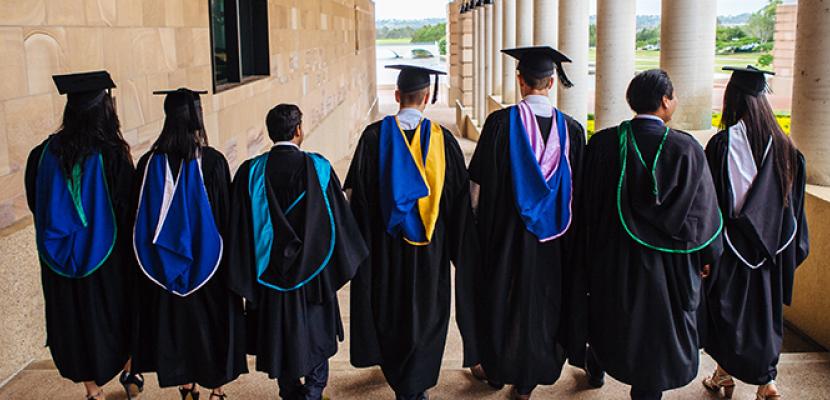
A changing workforce means there are changing demands on graduates.
While graduates still require deep content knowledge, industry changes mean they also need to develop broader skills to meet the challenges for the future workforce.
In fact, Deloitte’s The Future of the Workforce Report says three out of four executives (76 percent) surveyed expect automation will require new skills in the workforce by as early as 2020.
This is backed by an independent survey of 620 Australian hiring managers conducted by recruitment specialists Robert Half, which shows that 78 percent forecast it will be more challenging to find correctly qualified professionals in the coming five years, despite 68 percent of the population holding a qualification.
This report says the top three skills managers are looking for in candidates are a technical know-how, delegating decision making processes and communication skills.
Skills Bond University’s has been instilling in its graduates for some time. Even more so now with the introduction of its Transformation CoLab and new Transformation degrees in 2020.
Tech-savvy graduates wanted
Bond University industry partner Dr David Dugan, Business Mentor and Founder at Abundance Global, agrees with the findings of these reports.
“The businesses I work with are looking for resilient, adaptable, culturally aware people that can bring a level of technology savviness to their business,” he says.
“They don’t necessarily have to be a technology specialist but definitely a digital native. As well as finding someone that is willing to do the work, because many people believe the younger generation like to take shortcuts.”
The Robert Half research also found that 57 percent of Australian managers considered a technical know-how the most important skill necessary to drive organisations into the digital future.

Entrepreneurial revolution
Dr Dugan says we’re also in the midst of an entrepreneurial revolution and employers will be seeking graduates that have an entrepreneurial mindset.
For example, he says that a university student that he has working for his own firm has been running a $1million budget as an undergraduate. The expectations on employees are growing and they need to have those skills to adapt to the needs.
In 2016, millennials made up more than half the workforce worldwide, according to Deloitte’s The Future of the Workforce 2016 Report.
“They expect a mobile work environment, are fuelling the new “freelance economy,” and will spend no longer than 16 months with any employer on average,” the report says.
“This “loyalty challenge” is driven by a variety of factors. Millennials feel underutilized and believe they are not being developed as leaders. They bring high expectations for a rewarding, purposeful work experience, constant learning and development opportunities, and dynamic career progression.”
The future of work is intrapreneurial or entrepreneurial
Kirsty Mitchell, Director of Bond University’s Career Development Centre, agrees. She says most students don’t want a 30-year career at one company any more.
“A dream job in a bad culture will see millennials leaving after two weeks. However great people will keep you in an environment on average about two years longer,” he says.
“This is the future of work – being intrapreneurial and entrepreneurial. Thinking, how can I do things differently, how can I commercialise it; how can I test it.
“Side hustles, internships, work experience – all these things are designed to foster networking and saying yes to opportunities.”
How Bond is preparing its students
The Transformation CoLab exists to prepare students for the future world of work, equipped with skills employers might not even know they need it.
This is achieved through core university courses in critical thinking, leadership and ethical thought; the Beyond Bond program; and a new suite of Transformation degrees on offer in 2020.
Bond University is committed to ensuring all students leave with the following key attributes:
- Capable individual: graduates are highly self-aware and self-directed individuals who consistently exhibit initiative and persistence in pursuit of their goals.
- Effective collaborator: graduates are strong collaborators who lead or contribute to the outcomes of effective teams.
- Global citizens: graduates embrace inclusiveness whilst valuing the rich diversity of others from different backgrounds within changing environments.